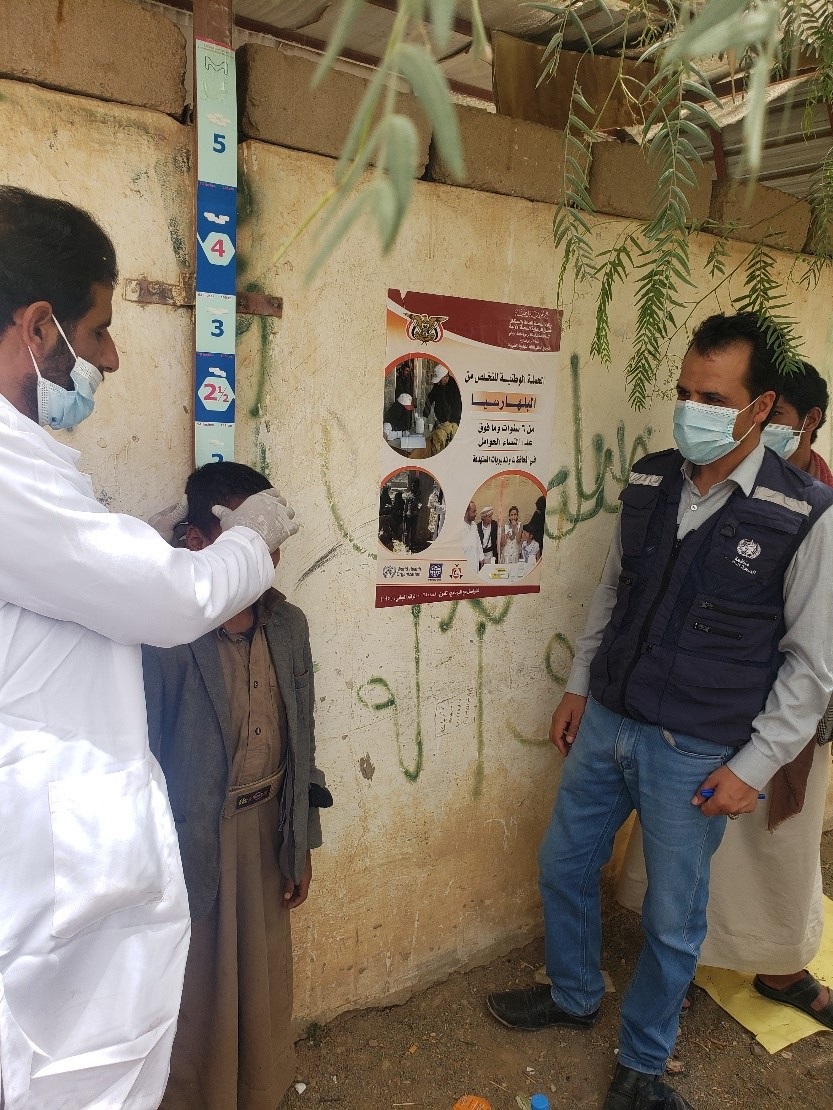
31 August 2022, Aden, Sana’a – Schistosomiasis is an acute and chronic parasitic disease caused by infection with blood flukes (trematode worms). This disease infects vulnerable communities in Yemen exposed to infested water – putting many lives at risk, especially those of young children.
Through the Emergency Health and Nutrition Project and its successor the Yemen Emergency Human Capital Project, the World Bank’s International Development Association and WHO are working to detect, diagnose, treat and care for infected patients with schistosomiasis across Yemen.
The importance of tackling this often-overlooked disease is critical. Schistosomiasis transmission occurs when people suffering from the disease contaminate freshwater sources with their excreta containing parasite eggs, which then hatch in water. Inadequate water, sanitation and hygiene and snail control increase schistosomiasis transmission. Children are especially vulnerable to infection, as lack of education and playing habits expose them to dangers. Freshwater snails can penetrate the skin when children come in contact with contaminated water.
The disease severely impacts a child’s performance in school, ending in stunted growth, reducing productivity, and affecting their learning abilities and physical and cognitive development. Schistosomiasis-associated anaemia is also prevalent, contributing to fatigue, weakness, and reduced focus. The disease is often fatal; if left untreated, schistosomiasis will eventually lead to debilitating long-term irreversible health complications in the urinary tract, liver fibrosis, kidney failure, bladder cancer, nephropathy, gastrointestinal bleeding, gastrointestinal obstruction, malnutrition, infertility, and pulmonary hypertension etc. Tackling schistosomiasis will give Yemeni children an equal opportunity in life, an equal opportunity for their right to education and lead the lives they deserve without disease holding them back in a vicious cycle of poverty.
To this day, schistosomiasis is one of Yemen’s most prominent health problems, as an estimated 6 million people are at risk of infection and 3 million are infected. The COVID-19 pandemic has disproportionately overshadowed the importance of eliminating neglected tropical diseases – especially schistosomiasis. Although schistosomiasis doesn’t receive as much attention as other conditions, its prevalence and potential risk are very high.
The World Bank and WHO are at the forefront of the health response to eliminate schistosomiasis. After years of making progress, scale-up interventions were implemented to break the vicious cycle of the socio-economic impact that the disease has on Yemeni communities.
Despite the severity of the condition, it is fully treatable. WHO and the World Bank delivered life-saving treatment across 9 governorates and 40 districts in Yemen. National schistosomiasis and deworming mass distribution campaign in May 2022 distributed anti-helminthiasis medication (albendazole) and anti-schistosomiasis (praziquantel) to a total of 1 859 469 people above the age of 6, reaching 80% of the target population.
The ongoing schistosomiasis campaign aims to eliminate the disease from communities in Yemen by transforming lives and alleviating children’s suffering from diseases that could otherwise be treatable and preventable. Protecting children from schistosomiasis and safeguarding their educational rights and socioeconomic well-being bring hope to communities in Yemen.


